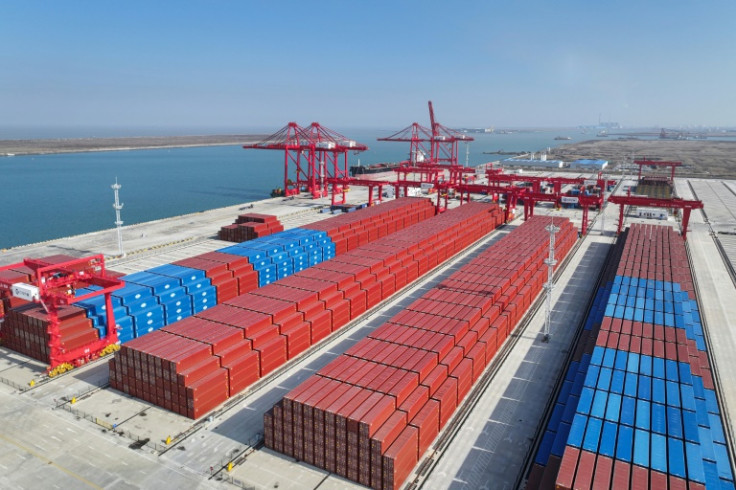
BOGOTÁ - China is shifting its investment strategy in Latin America and the Caribbean: concretely, Foreign Direct Investment (FDI) into large-scale infrastructure projects -- such as canals and railroads that were emblematic of the mid-2000s Belt and Road Initiative -- has been reduced and redirected in recent years to smaller, yet more numerous, investments into high technology, including artificial intelligence (AI), 5G connectivity and electric vehicles.
While the switch aligns broadly with China's latest economic growth goals (which focus mostly on innovation and sustainability), the country's interest in Latin America's critical infrastructure, including telecommunications, data centers, industrial internet, and ultra-high-voltage electricity transmission, continue to raise security concerns in Washington.
According to a new report from the Inter-American Dialogue, a Washington D.C.-based think tank, China's overall FDI into Latin America and the Caribbean fell to $6.4 billion in 2022, down from $7.7 billion (2020 to 2021), and an average of $14.2 billion per year from 2010 to 2019. From 2003 and 2022, China invested a total of $187.5 billion into the region, the report showed.
While the United States and Europe remain the largest overseas investors, accounting for 38% and 17% of total overseas FDI into the region in 2022, China accounted for 9% in that same year, as it deepens its strategic approach to a region where, some experts argue, US influence is eroding.
"The recent drop in Chinese FDI in LAC is attributable to many factors, but is at least partially related to an ongoing recalibration of investment priorities on the part of China's government and its companies," wrote Margaret Myers, Director of the Asia and Latin America Program at Inter-American Dialogue and a co-author of the report.
According to the report, information and communication technology (ICT) deals made up 40% of all investments between 2018 and the first half of 2023. However, these accounted for just 8% of the total value of Chinese FDI during that time period, with other sectors like energy extraction, utilities and agriculture accounting for most of the total value.
Even in traditional sectors, like agriculture and energy, China has made a turn toward sustainability and innovation. There's been a shift "from an early focus on boosting food production to recent interest in buying agricultural chemical companies," read a passage of the report. Moreover, researchers found a "notable shift" from Chinese investments in traditional energy sources to renewables since 2015, specifically hydroelectricity.
In the mining sector, China has pivoted from extracting for construction materials to precious metals used in electronics. "When others woke up, China was already there," Angel Melguizo, an economist and co-author of the report, wrote on X. "Now that some regions are looking for critical minerals, China has accumulated [USD $11 billion] in FDI deals only on lithium since 2018." Lithium is commonly used for electric car batteries and other electronics.
"Gone are the days when China would pay for multibillion dollar infrastructure projects in Latin America, but Beijing still has its eye on strategic sectors in the region, including energy transmission and the mining of minerals needed to build batteries," Benjamin Gedan, Director of the Wilson Center's Latin America Program, told The Latin Times.

"The region's technology sector, including telecommunications, is a special priority for China. That makes the United States uncomfortable," Gedan said.
Chinese investment in ICT
China introduced what it calls "new infrastructure" in 2018 as part of its latest five-year economic development plan. An umbrella term for emerging tech, new infrastructure encompasses AI, blockchain, cloud computing, big data, new energy, automated factories, 5G, ultra-high-voltage transmission and industrial internet.
Chinese telecom giant Huawei has been in the region for a quarter of a century, and, as of 2019, operated in 20 Latin American countries, reported The Dallas Morning News. The company has a significant market share in Brazil, Chile and Peru, and reportedly counts the highest number of cloud computing nodes in Latin America.
The US has been vocal about China's economic involvement in Latin America, and more recently, about the Asian power's participation in critical digital infrastructure projects region-wide.
"PRC law and practice mandate that China-based companies serve the state's interests, raising concerns about infrastructure projects sponsored by these companies," wrote US Air Force Maj. Gen. Evan L. Pettus, referring to the People's Republic of China. "PRC technology companies are required by law to share data with the Chinese government, making data flowing through PRC-installed 5G and other technological infrastructure theoretically vulnerable to exploitation."
On Monday, Chinese Foreign Ministry Spokesman Wang Wenbin addressed US politicians, asking them: "Why do you coerce other countries into banning Chinese companies when nobody else is calling them a threat?" "For those US politicians, anything China is good at is a threat to the US. Perhaps the only things China exports that do not constitute a threat to the US are shirts and socks," he added.
Amid the political mudslinging, President Joe Biden has reiterated his desire for the US to take a more active role in Latin America's economy, while also being criticized for not investing enough into the region.
"Biden recognizes Beijing's economic importance to Latin America, particularly South America, and has not encouraged leaders to decouple from China," said Gedan. "But telecommunications is a different story." Gedan added that the ubiquity of Huawei hardware in the region is "seen as a major vulnerability."
According to a December report from Colombia Risk Analysis titled Understanding China's Tech Footprint In Colombia, the "quality and price advantages of China's technologies should not prevent or postpone a necessary and urgent discussion on the potential privacy and security risks they generate."
"However," wrote Colombia Risk Analysis Director Sergio Guzman, "so far, no country seems to have presented conclusive evidence of possible interference by the Chinese government through Huawei or ZTE," two of the largest Chinese technology firms.
Guzman told The Latin Times that countries in the region, like Colombia, "are really trying to have some strategic ambiguity, because right now they don't have to choose between the US and China." He said that these countries will extend this position for as long as possible, until they are forced to make a different decision.
© 2024 Latin Times. All rights reserved. Do not reproduce without permission.







